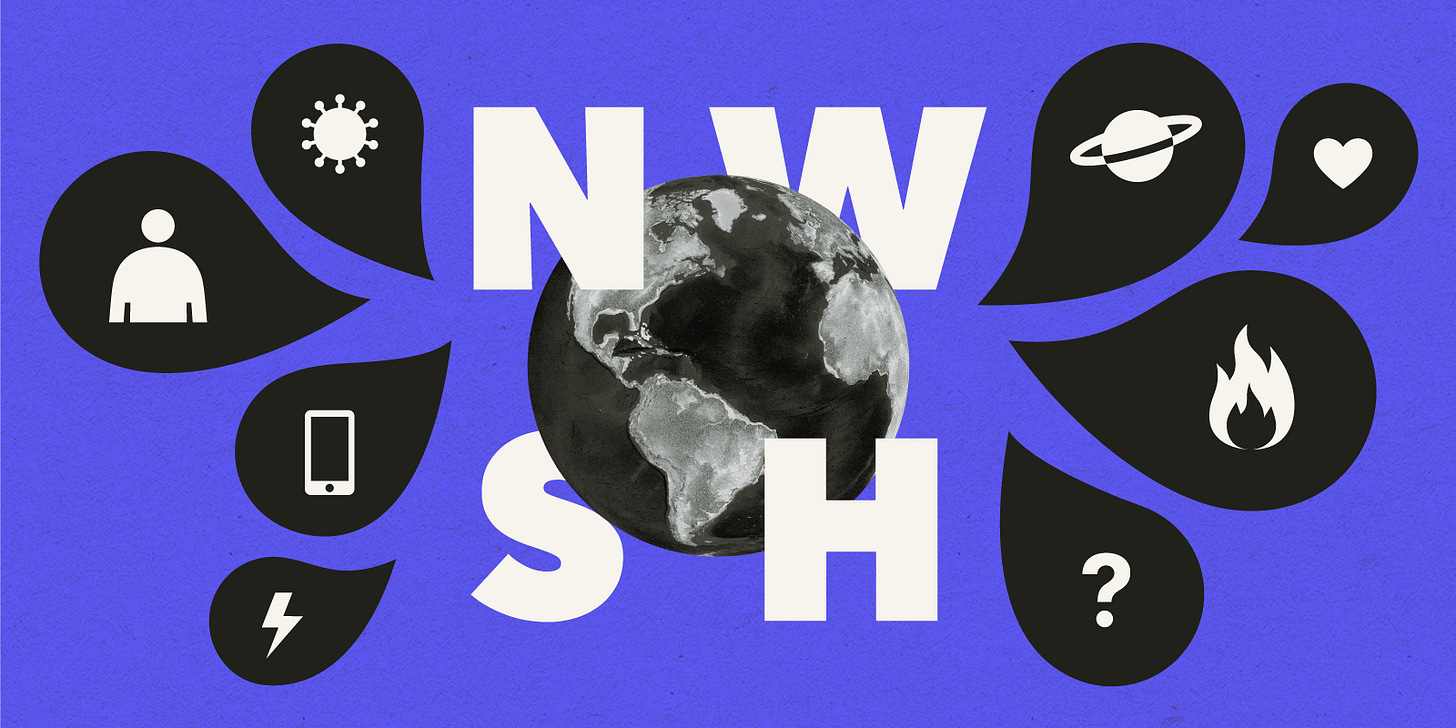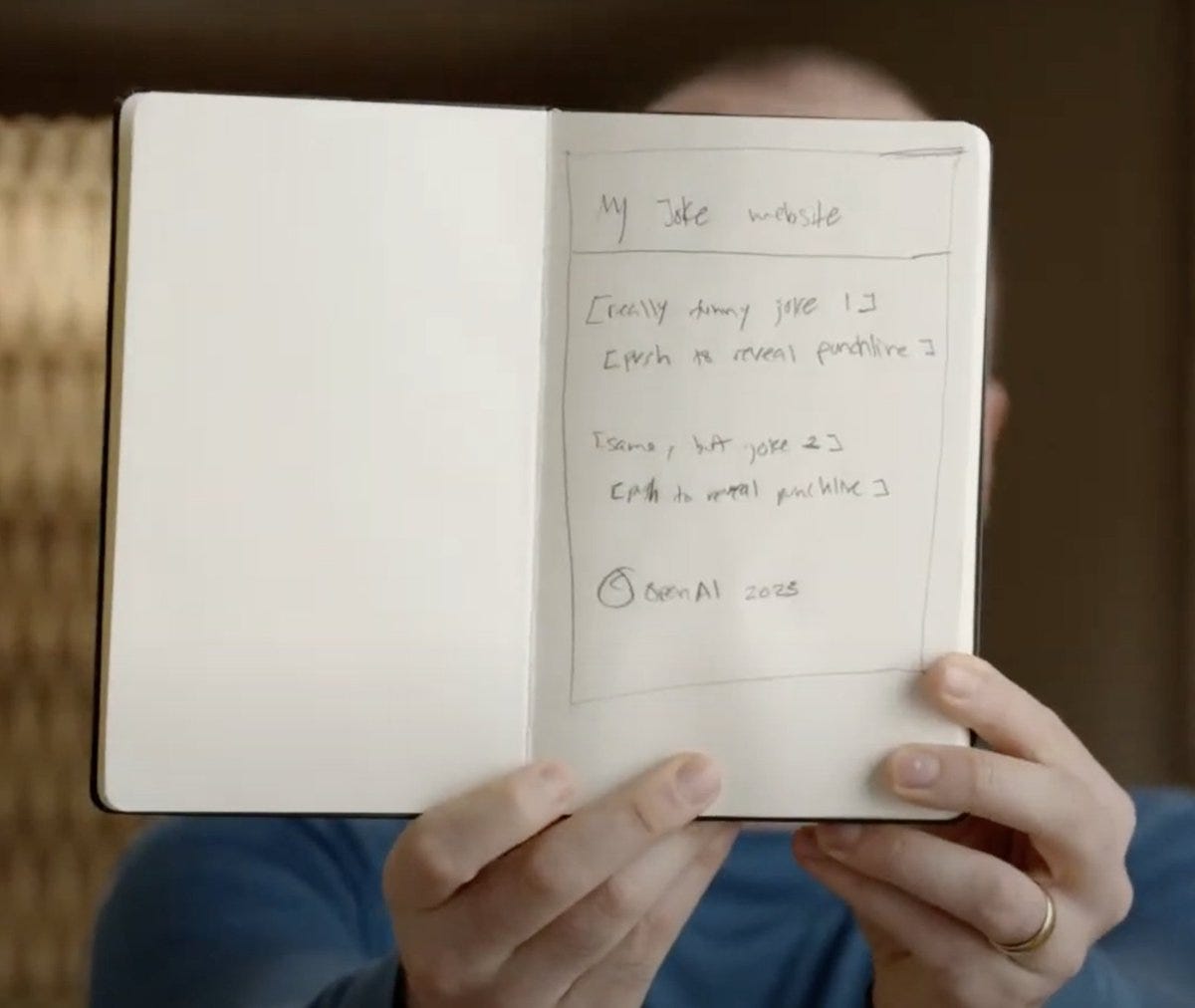New Week #116
GPT-4 is founding an Empire of Imagination.
Welcome to the mid-week update from New World Same Humans, a newsletter on trends, technology, and society by David Mattin.
If you’re reading this and haven’t yet subscribed, join 24,000+ curious souls on a journey to build a better future 🚀🔮
This week, a special — you might say an emergency — instalment of New Week, in light of current events.
I’m talking about the arrival of GPT-4, and its rapid integration into the tools on which we run the knowledge economy. It’s ever more clear that we’re amid something historic. I’ll be writing much more about all this in future instalments. But some early reflections below.
💥 Empire of Imagination
It’s been a big week.
In last week’s instalment I mentioned rumours — started by a Microsoft executive at a tech event in Germany — that GPT-4 was about to be unleashed on the world. I was sceptical. My response: let’s see what next week brings.
Now, we know. OpenAI released GPT-4 on Tuesday. It’s multimodal: capable of accepting both text and image inputs. It can perform sophisticated reasoning tasks with images, answering questions such as: tell me what is funny about this picture? It can write code in pretty much every major programming language.
The standout moment of Tuesday’s livestreamed demo? It was when GPT-4 turned this rough notebook sketch into a simple functioning webpage in about 20 seconds. In this one picture a revolution is latent:
The AI even wrote the jokes.
It’s clear that the picture above heralds multiple transformations: economic, creative, and social. No one can yet understand all the implications; anyone who says they do is, at best, misguided.
The implications are about to be tested, though. Because on Thursday Microsoft announced that they’ll soon integrate GPT-4 into their Office suite of tools, including Word and Excel. Around 1.2 billion people worldwide use those applications; for hundreds of millions this software is woven through their daily working lives. We’re about to witness a live experiment in technology adoption — and in the transformation of information and knowledge processing — unlike anything ever seen.
It’s hard to find adequate historical comparisons. As Emad Mostaque, founder of Stable Diffusion, observed this week in an interview with finance and business platform Real Vision:
‘This is a bigger thing than China entering the WTO. Because what that did is scale manufacturing. This scales ideas; this scales information flow. And we’re just at the beginning of that, even though it’s already being deployed at insane scale.’
This wave of large language models effect a transformation in our relationship with knowledge comparable to that driven by the Gutenberg press. The difference is that it took decades for the printing press to diffuse across Europe, and 350 years for it to get around the world. But via Office 365, the entire global knowledge worker class is about to smash into AI all at once.
What happens next? Multiple domains that have always required intensive, hands-on intellectual labour — and therefore have remained fairly impervious to technological productivity gains — are about to be transformed. Think law; GPT-4 passes the US bar exam with a mark that places it in the 90th percentile. Or medicine; Google’s new Med-PaLM 2 performs at ‘expert’ level on medical exams, scoring 85%. Want to get a sense of ChatGPT’s educative power? Just log in and ask it to teach you to code. There’s no point in avoiding the truth: it’s going to be deeply, unpleasantly disruptive for millions.
But the implications run beyond even these enormous impacts on the economy and the professions.
What, in the end, is being transformed by these AIs? It’s nothing less than the relationship between human imagination and reality. We humans possess a power of recursive thought that allows us to imagine pretty much anything. The rub has always been that there is a huge amount of friction — of expertise, technique, and labour — between what we can imagine and what we can make real. Now, at least when it comes to digital entities, that friction is being disappeared. Imagine it — an image, slide deck, app, video game, virtual world — and in seconds in can be realised.
In the challenge this poses to the global knowledge worker class — what is the point of us now? — also lie the seeds of something empowering. The only way forward will be to double-down on what is uniquely, truly human: our deep investment in what is beautiful, moral, funny, valuable to us. That is what we’ll have left to give: the initial spark of an idea, the creative leap that comes from nowhere, the care for one another and how we can make each other feel.
This week I spoke at an event for leaders inside large organisations. I talked (of course) about generative AI, and at the end someone stuck up their hand and said: my son is about to take his GCSEs. Given what is happening with these AIs, what should I be telling him about what he should do next? What should schools be teaching our children?
It’s become one of the most common questions I’m asked. The only answer I’ve got right now: we need to teach our children that it’s okay — in fact it can be great — to be wrong, because being prepared to be wrong is the foundation of all meaningful creativity. And we need to teach them that the real work of human beings is to truly see, and be with, one another. That is all that will be left at the end of this long road we’re travelling with machine intelligence: each other.
All the rest — any domain of procedural technique or expertise, pretty much everything we now define as ‘work’ — is being eaten by machines. But once that is finished, what we’ll have left is what really counted all along.



Also, it will be very important in the near future to be good at discerning truth from misinformation. Not a work skill, but a life skill. For example, not necessarily auto-trusting that voicemail from your child or parent without calling them directly to check if they left you a message.
This article makes me think that the wellness industry will start growing (even more). Covid 19 was a big reason why everyone started looking for ways to feel more connected through communities, yoga, meditation, etc. The advances in AI will eventually lead humans to our basic need of belonging and unity